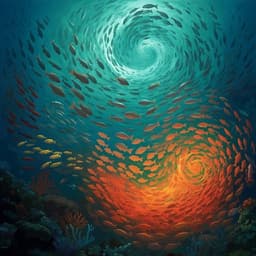
Earth Sciences
Ships are projected to navigate whole year-round along the North Sea route by 2100
P. Zhao, Y. Li, et al.
This study conducted by Pengjun Zhao, Yunlin Li, and Yu Zhang explores how climate change is transforming Arctic sea ice conditions, paving the way for potential year-round navigation through the Northern Sea Route by 2100. Discover the profound implications for global shipping and commerce.
Related Publications
Explore these studies to deepen your understanding of the subject.







